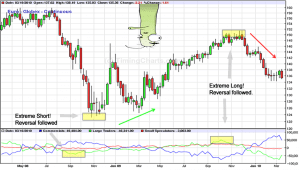Foreign Exchange Market
Thu, 25 Jan 2024


Trading the financial markets is both a science and an art. Achieving success requires a combination of skill and knowledge, as well as the ability to effectively plan and execute trades. The key to success lies in having an effective strategy, which requires taking a skill assessment and setting goals. In this blog post, we will explore how to “Plan the Trade, Trade the Plan” by assessing your trading skills and setting realistic goals for success.

Importance of having a plan
Having a plan is an essential part of becoming a successful trader. A plan outlines the steps you need to take in order to reach your trading goals, such as setting entry and exit rules, practicing disciplined risk management, and planning for profit and loss. Having a plan helps traders make informed decisions about how to manage their brokerage account and money. A plan is not only necessary for managing trades but also for trade preparation.
A trader's plan should include entry rules, exit rules, risk management practices, and planned profit and loss goals. Entry rules help traders decide when to enter a trade, while exit rules are used to determine when it is time to exit a trade. Risk management practices help ensure that traders do not risk too much of their capital at any given time, while planned profit and loss goals provide an objective target to aim for. By having a plan, traders can better prepare for the unpredictability of the markets and increase their chances of achieving success.
How to make a plan
Creating a plan for trading is essential for any trader to be successful. A plan should identify and outline the trader's trading characteristics and personal trading style. It should also provide specific instructions on how the trader should approach the market.
When making a plan, the trader should consider the following elements:
By creating a plan that incorporates these elements, traders can have an organized approach when it comes to trading. Additionally, having a plan can help traders focus on their trading objectives, understand what works best for them and manage their emotions while trading.
What should be included in a plan
Creating a trading plan is an important part of becoming a successful trader. A trading plan should provide an overview of what you want to achieve and how you are going to get there. It should include all the steps that you will take in order to reach your goals.
When creating your plan, it is important to consider things like the type of brokerage account you are using, the type of trading strategy you will be using, your trade preparation, entry rules, exit rules and profit/loss goals.
Your brokerage account should be chosen with care. You should select one that meets your requirements and supports the type of trading strategy you will be using. You should also consider the fees associated with the account, as well as the types of research tools and platforms that are available.
Once you have selected a broker, it's time to start preparing for trades. Your trade preparation should include researching the markets, identifying possible trading opportunities, analyzing chart patterns, and setting entry and exit rules. Having entry and exit rules helps ensure that you are consistently entering and exiting positions at the right times.
Profit/loss goals are also an important part of any trading plan. They should be realistic and achievable, so make sure to set goals that are within your means. Your plan should also include risk management rules such as position sizing and stop losses, as well as measures to help protect your capital.
In conclusion, a trading plan should include all the steps you need to take in order to reach your goals. Things like the type of brokerage account, trade preparation, entry and exit rules, and profit/loss goals should all be included in your plan in order to ensure success.
How to execute the plan
Executing a plan is essential for trading success. One of the most important steps in executing a plan is to set realistic and attainable goals. These goals should take into account a trader's skill assessment, financial resources, and time constraints. Once these goals are established, traders can begin to practice their strategies and implement them in their brokerage accounts.
When executing a plan, traders should also make sure that they monitor their trades on a regular basis. This will allow them to adjust their strategy when necessary and ensure that their trades are as profitable as possible. Finally, it's important to review and revise the plan over time in order to remain competitive and make the most of changing market conditions.
Why it's important to review and revise your plan
Reviewing and revising your plan is essential for long-term success in trading. This allows you to identify mistakes and make adjustments as the market changes. Taking time to analyze your performance on a regular basis will help you make informed decisions that will lead to greater profits in the future. By reevaluating your plan, you can also identify opportunities and make sure that your strategies are still relevant and effective. It’s important to note that the best trading strategies are often those that evolve over time, so regularly reviewing and revising your plan is necessary if you want to stay ahead of the competition.
Thu, 25 Jan 2024

Thu, 25 Jan 2024

Leave a comment